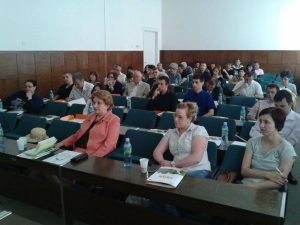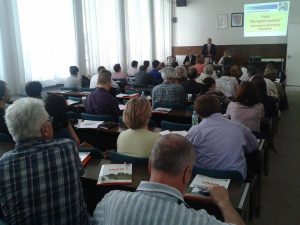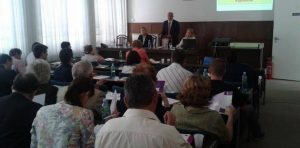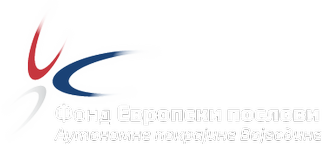Establishment of a coordination group for CSOs by the European Affairs Fund of AP Vojvodina
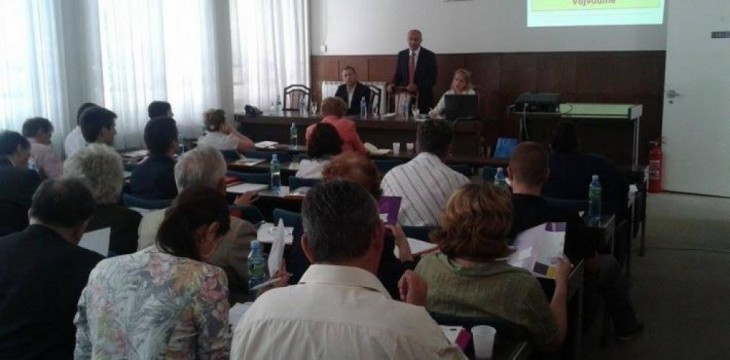
Another coordination group gathering civil society organisations (CSOs) in Vojvodina has been established by the European Affairs Fund of AP Vojvodina at a meeting held at the Assembly of the Autonomous Province of Vojvodina.
The meeting was opened by the director of European Affairs Fund of AP Vojvodina, Mr Siniša Lazić, who greeted the attendees and pointed out the importance of establishing the coordination group for CSOs, which would contribute to enhancing the cooperation and partnership between CSOs and the European Affairs Fund of AP Vojvodina, as well as other public provincial institutions and municipalities in the EU integration process.
On that occasion, the attendees were informed about the Fund’s activities in brief, placing special emphasis on the goal and activities of the existing Fund’s coordination groups, which were the following: coordination group for local self-governments, coordination group for public and public and communal enterprises, and coordination group for provincial institutions and secretariats.
As a part of the information dissemination system, the coordination groups gathering the representatives of relevant public institutions of Vojvodina had been established, aimed at enhancing the flow of information on available EU programmes and funds, as well as ongoing EU calls for proposals. Moreover, another goal of the coordination groups was to enhance the cooperation and networking of institutions in AP Vojvodina.
During the meeting, the participants were informed about the ongoing EU calls and programmes:
Third Call for Proposals under the IPA Cross-Border Programme Croatia – Bosnia and Herzegovina 2007-2013; MEDIA sub-programme of the European Union; Visegrad+ Program Western Balkans (International Visegrad Fund), as well as of the call of the Central European Initiative (CEI KEP Austria).
The representatives of CSOs and NGOs defined the institutional and administrative needs of their organisations, on basis of which the future goals and activities of the coordination group would be defined more precisely. Some of the potential activities would involve the following: training courses on developing project applications, especially those related to the cross-border cooperation programmes, transfer of best practice on the vertical and horizontal level, thorough familiarization with the negation process, training courses on practical policy development, etc.
Finally, the conclusion was that there was a need for cooperation between the civil and public sector and the main challenges in that process were defined. In that respect, the coordination groups would seek after a more open, continual and transparent dialogue and cooperation; capacity building of CSOs to participate more efficiently in the EU integration (especially in the segment of capacity building to attract EU funds be means of project application development); elimination of incorrect perception and prejudice related to the role of CSOs and province institutions, with the aim of demystifying the responsibilities of social stakeholders in the EU integration process.
